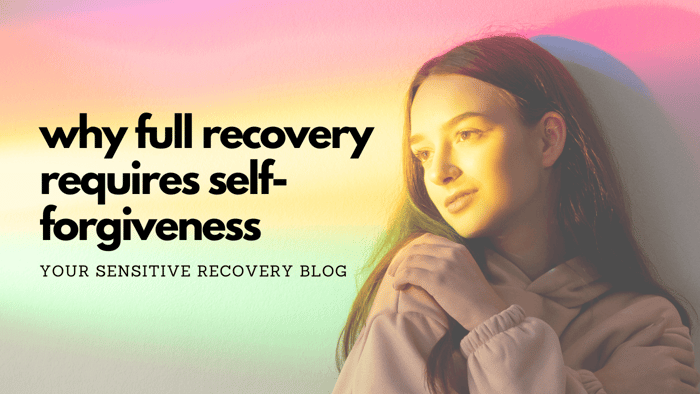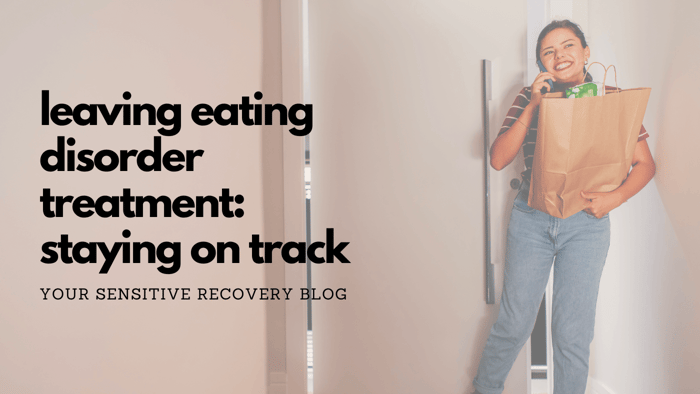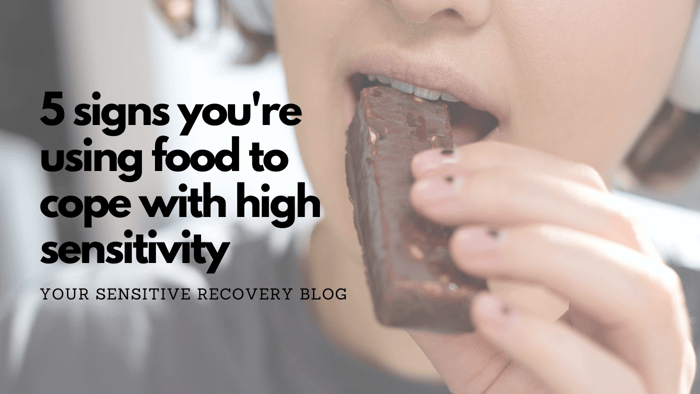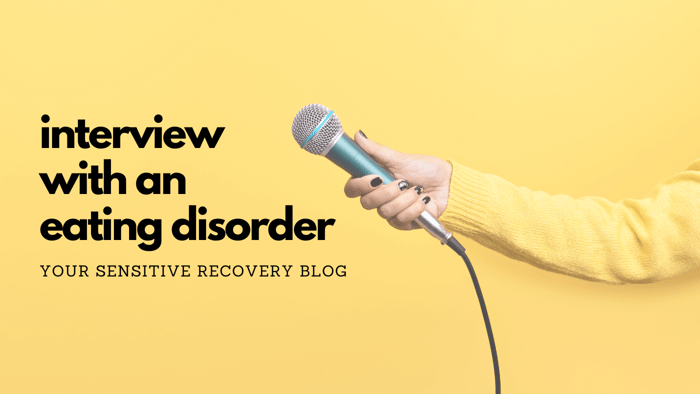Full recovery from an eating disorder is more than a journey of healing your body and stabilizing your eating behaviors. There's a deeper, less visible element that gets overlooked: Self-Forgiveness. If you've ever battled an eating disorder or an addiction, you know that it comes with a uniquely heavy burden; one of guilt, shame, and regret...not only for the pain inflicted upon yourself but upon your loved ones who struggle to understand "why you're doing this."
These emotions can feel insurmountable and often delay or sabotage treatment. Even individuals who are firmly on the recovery path may not recognize the power of self-forgiveness, and just how crucial it is to a full and lasting recovery.
From my own process, and throughout the almost 15 years I've spent working with individuals in recovery, I've learned why self-forgiveness is such an essential part of the healing process, and how it can help you leave your eating disorder behind for good.
The Shackles of Shame
"You're a net loss."
Those were the words my partner at the time said to me as I sat crying, explaining how I once again needed to step up to a higher level of care. I don't know if he meant anything beyond how we'd spent more money on my eating disorder treatment than I had made during our marriage, but the words meant something much deeper to me.
What I heard was I was not worth it. Eating disorder or not, on a fundamental level, I must be worthless. Not worth loving, and certainly not worth recovery.Guilt, shame, and regret are part and parcel of the trajectory of an eating disorder's development and maintenance. And it's no wonder! Here are just a few of the things that survivors might experience that often feed these challenging emotions:
- the financial burden of treatment
- relapsing, sometimes multiple times
- the emotional pain of loved ones who have witnessed the eating disorder's destruction
- delaying or leaving school or taking time off of work for treatment
- medical complications, especially irreversible ones
- lies and secrecy that have eroded trust in relationships
- "wasting" a spot in treatment that "someone sicker should have"
- "lost time" and missed opportunities and experiences
All of these and more amount to heavy chains of self-punishment and self-abuse that survivors can drag around for decades. Self-forgiveness is the key to breaking free from these chains. Only then can we toss the emotional and mental baggage and create actual space for transformative self-compassion and deep healing.
Better, But Still Paying the Price
Whether you're fairly new to recovery or have been walking this path for a while now, learning to forgive yourself is vital in claiming the freedom you deserve. Nobody chooses to become trapped in the hell that is an eating disorder; not even people who make a conscious choice to engage in dangerous crash diets or seek out pro-eating disorder content on social media.
Not everyone believes full recovery from an eating disorder is possible. I do, and I think that the power of authentic self-forgiveness is part of what makes it possible. Maybe you've been in recovery for years and the behaviors subsided long ago. Your thoughts are mostly healthy now and you utilize a variety of supportive, effective coping tools.
But if you haven't consciously done the forgiveness work around your eating disorder and its ramifications, you may be out of prison, but you're keeping yourself on parole.Unconsciously, you may hold yourself back from exciting opportunities. You might continue to prioritize others' needs as an attempt to "make up" for past pain without realizing you're doing it. Perhaps it's difficult to spend money on yourself or to trust yourself enough to make decisions. These are just some of the ways that a lack of self-forgiveness can impact your life and your spirit.
Maybe you're on the lookout for ways to continue to punish yourself without knowing it.
Liberation is Not a One Way Street
If you allow the grace of self-forgiveness to grant you freedom from your eating disorder and everything that came along with it, your freedom will empower the freedom of others.
Here's an example: Let's say you've been choosing to stay in a loveless relationship because your partner was there for you during your recovery and you feel like you owe it to them. You're not the only one being held back. Freeing yourself ultimately means freeing your partner, even if there will also be pain.
The act of self-forgiveness is ultimately about you, but it's not selfish. In fact, it's an invitation. It models to others that full recovery is achievable, not through discipline and atonement but through compassion. When you liberate yourself, it becomes a visible act of courage that paves the way for others, whether it's your loved ones, fellow recovery warriors, or even future generations by offering them the permission to free themselves from their own cycles of self-blame and punishment.
In essence, self-forgiveness radiates outward. It lights a lamp in the darkness for others to follow.For me, that lamp is my career now as an eating disorder therapist. But even if your future has NOTHING to do with directly paying it forward in such a way, know that your light matters. We are all connected, and by embracing self-compassion and allowing self-forgiveness, you create an environment where others feel safe enough to extend that same kindness to themselves.
True freedom, after all, thrives not in isolation but in community. This shared experience can shift perspectives and change lives, not only yours but all of the lives you may one day touch. What a gift. 💝
✨ Josie Munroe, LMFT is a licensed therapist and owner of JosieMunroe.com and Your Sensitive Recovery. As a recovered clinician and Highly Sensitive Person, she loves supporting others on their journeys to form new, empowered relationships with food, their bodies, and their sensitivity. Join the newsletter for a weekly boost of hope and inspiration. You deserve a recovery that works for you! ✨





